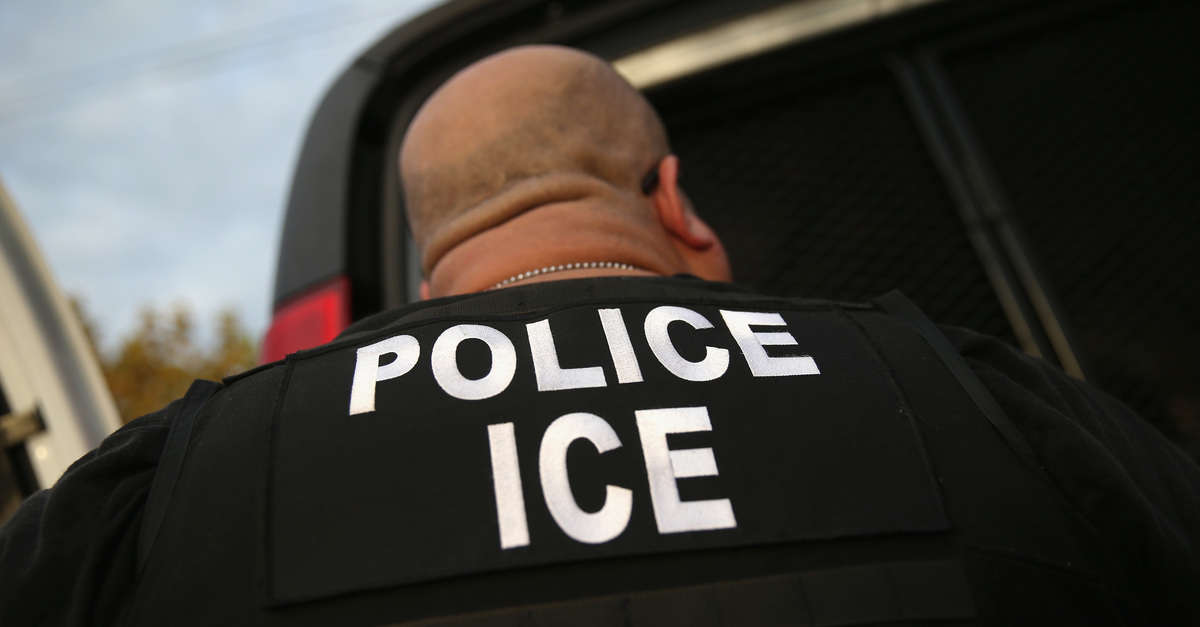
Once again, Immigration and Customs Enforcement is scheduled to launch raids nationwide to arrest alleged undocumented immigrants. Once again, this news sparked controversy. Here’s some key points to know.
1. Who, When, and Where
The plan is to arrest at least 2,000 undocumented immigrants starting Sunday, said two current Homeland Security officials and a former one in a New York Times report. This is a multi-day operation taking place across at least 10 major cities. The plan is that family members arrested together would be detained in Texas and Pennsylvania. If there’s not enough space, they would be put in hotel rooms, pending deportation.
The people all allegedly faced removal orders, but stayed state-side.
These sources were described as speaking on the condition of anonymity because the operation was in its “preliminary stage.”
Raids were scheduled for last month, but were postponed amid outcry. This reportedly would have happened 10 cities: Atlanta, Baltimore, Chicago, Denver, Houston, Los Angeles, Miami, New Orleans, New York, and San Francisco.
2. Some People Who Aren’t Targets May Be Arrested
ICE might detain other immigrants who were at the scene of the arrests, even though they weren’t initially targeted, according to the report.
3. The Government’s Plan: Detain People ASAP, and Scare Off Migrants
Here’s how the Times conveyed the government’s intention:
The Trump administration’s goal is to use the operation as a show of force to deter families from approaching the southwestern border, the officials said.
This matches how Trump administration administration officials defended their infamous family separation policy. Look at how then-Chief of Staff John Kelly put it.
“They’re coming here for a reason,” he said in a May 2018 report from NPR. “And I sympathize with the reason. But the laws are the laws. But a big name of the game is deterrence.”
Then-Attorney General Jeff Sessions framed their aggressive immigration policy as being for the good of the immigrants.
“They are the ones who broke the law, they are the ones who endangered their own children on their trek,” he said in a speech on June 14, 2018. “The United States on the other hand, goes to extraordinary lengths to protect them while the parents go through a short detention period.”
4. Immigrants Still Have Ways to Fight This in Court
These raids are primed to start court battles.
“News reports indicate that the Trump administration plans to start raids in several major U.S. cities this weekend to round up and deport thousands of undocumented families,” Cornell University Law School Professor Stephen Yale-Loehr wrote in an email to Law&Crime. “While the administration certainly has the right to deport people with legitimate final deportation orders, many of those orders may be subject to challenge.”
Yale-Loehr pointed out possible oversights in the immigrant court system. For example, in prior cases, an immigration agency had the wrong address to contact an immigrant about a court date because “inefficiencies” in the court system, thereby resulting an illegal deportation order.
“In such cases, they may have the right to reopen their immigration case,” he wrote. “Also, the immigration agency may pick up other immigrants not subject to final deportation orders because they happen to be in the same area as someone the agency is looking for. And families may be separated because of the raids.”
He said that immigrants have certain constitutional rights even if they’re undocumented. They can even refuse to open the door for agents, unless officials have a valid search warrant.
[Image via John Moore/Getty Image]